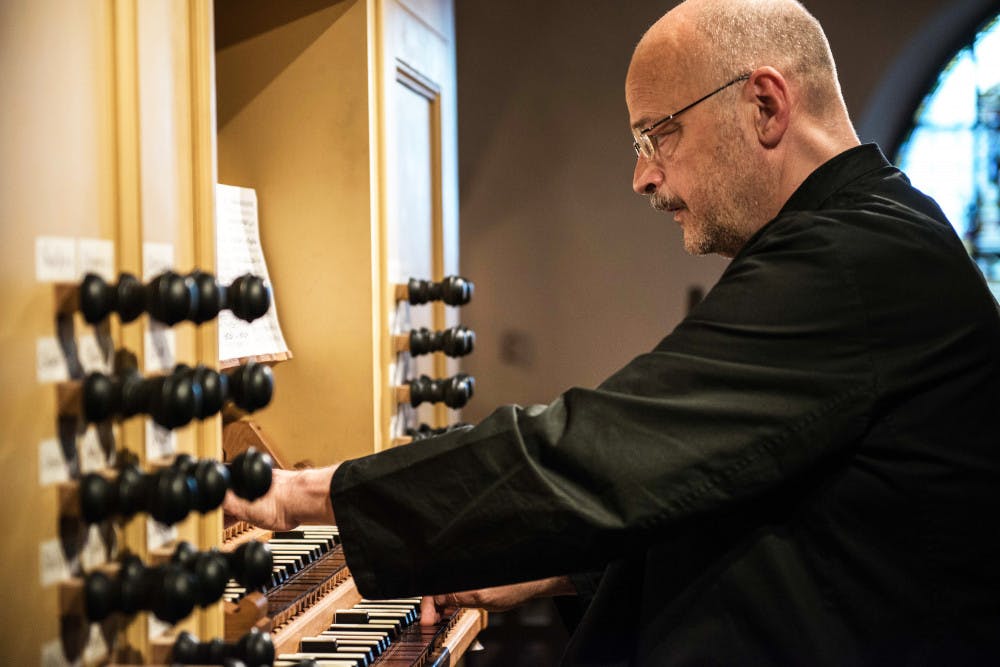The University welcomed Hans-Ola Ericsson, world-renowned organist and professor of organ and church music at McGill University, to perform as the featured artist in the annual E.J. Lownes Memorial Organ Recital in Sayles Hall Friday.
Ericsson performed a repertoire of works from Jean-Philippe Rameau, Arne Mellnäs, Yves Rechsteiner and Olivier Messiaen. Ericsson specializes in Messiaen’s movements, as he has studied alongside the composer and personally recorded Messiaen’s complete works.
“I play good music, music that I believe in. Perhaps not the standard selection, but I’m more interested in the content rather than the surface,” Ericsson told The Herald prior to his performance.
Ericsson’s extensive organ experience has allowed him to experiment and draw inspiration from both the classics and 20th century compositions. Born in Stockholm, Sweden, Ericsson has always been interested in pursuing music as a career, he said. “I could never avoid it. It just happened.”
Ericsson began playing the organ at just 10 years old, attending music and choir school in Stockholm as a child. “Those were the happiest moments in my life,” Ericsson said. “To be a student is the greatest thing I have ever experienced.”
He continued to study in Stockholm and Freiberg, Germany and later worked with many composers including the Italian avant-garde composer Luigi Nono, American music theorist and composer John Cage and Messiaen. Ericsson began his teaching career as professor at the School of Music in Piteå and has taught at the Schulich School of Music at McGill University since 2011.
Ericsson said that sometimes he wishes he had more time to compose, but he enjoys life as a professor. “To work with students is a very nice way to stay alert. You have to keep up to their references, when it comes to the simple fact of communication,” Ericsson said.
This desire to communicate with his students mirrors his approach to connecting with each organ. “No organ is like another. You must match the music to the instrument or squeeze it to the last drop. This is especially a big challenge,” Ericsson said.
The organ is “a completely engaging instrument because you are using both hands and feet,” added Mark Steinbach, university organist, instrument curator and lecturer in music. “This beast isn’t for everyone.”
Beyond his familiarity with and expertise on Messiaen, Ericsson is known for his post-avant-garde style, which is the main reason Steinbach invited him to play at the recital. “I knew Ericsson specialized in new and esoteric 20th century music,” Steinbach said.
He first heard Ericsson’s unique style 15 years ago at an organ festival in the Netherlands, where Ericsson performed a piece that incorporated electronic music and was accompanied by a light show.
“I contacted him to do the concert last summer. We found a date and made it happen,” Steinbach said.
Along with members of the Department of Music and the Office of the Chaplains and Religious Life, many students were excited to hear Ericsson play. “It’s always good to be able to interact with the people at the top of their field,” said Devon Carter ’19. “Ericsson is a very talented new music organist. It’s a very niche field, but he is an incredible musician.”
Ericsson found Brown distinctive, just like his own genre of music. He noted the charming Providence architecture and the unique nature of the community.





